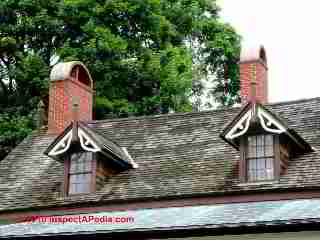Fire hardening also known as fire danubing is the process of removing moisture from wood changing its structure and material properties by charring it over or directly in a fire or a bed of coals.
Fire hardened wood roof.
These flames can extend to the edge of the roof and adjacent siding.
Regularly remove vegetative debris from your roof and gutters.
Conventional wood decks are so combustible that when wildland fire approaches the deck often ignites before the fire gets to the house.
This ancient wood preserving technique has likely never been used in this application and time will tell if there s a reason for that.
Homes with wood or shingle roofs are at high risk of being destroyed during a wildfire.
Simple steps you can take to harden your home against wildfire.
Even with class a fire rated roof coverings vertical surfaces next to the roof edge will be exposed to flames from the ignited debris.
An initial study suggests that the process might make the wood brittle but would reduce the time needed to make a spear point substantially.
Block any spaces between roof decking and covering to prevent embers from catching.
Fire hardened wood roof on my log cabin.
It makes the wood water weather insect uv and burn resistant perfect for the roof of this log cabin in the woods.
Build your roof or re roof with materials such as composition metal or tile.
Embers are the most important cause of home ignition.
The roof is the most vulnerable part of your home.
Homes with wood or shingle roofs are at high risk of.
To fire harden a deck it may be sufficient to isolate the.
This has been thought to make a point like that of a spear or an edge example needed like that of a knife more durable.
Dry debris can be ignited by wind blown embers.
The roof is the most vulnerable part of your home.
It s wood plank hardened with flame in the japanese style of shou sugi ban an ancient technique of preserving wood for construction.





























